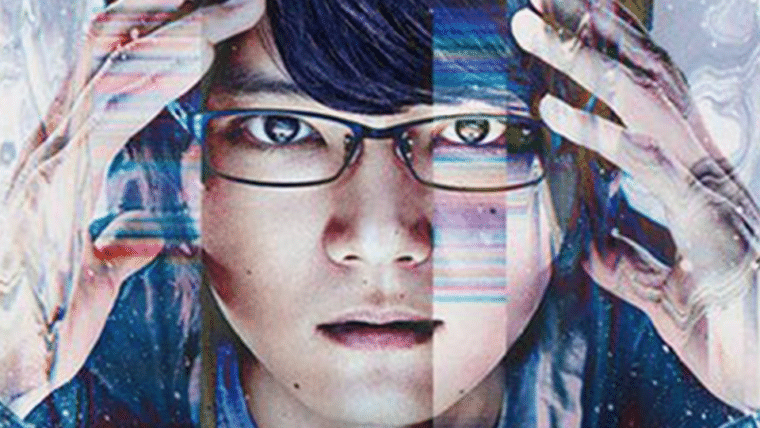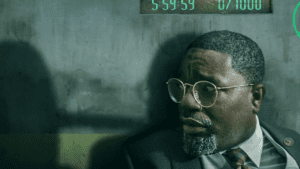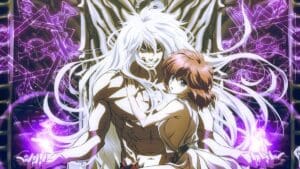Once upon a time, amongst the thumbnails, Netflix offended an entire group of people by releasing Netflix Original Death Note (2017). The term whitewashing came to the surface. Even streaming services are not dissolved from social responsibility. Luckily for Netflix, Death Note (2017) was horrendously bad. It was forgotten within a day of release.
It is obvious that the leading streaming service wants to appeal to everyone globally. Their mission is more or less achieved, but Manga adaptations need work, especially in Western form. Netflix has their work cut out. Erased, also known as Boku dake ga Inai Machi, is their second throw of the dice, and it is not a careless attempt.
What is Netflix Original Erased / Boku dake ga Inai Machi?
Netflix Erased / Boku dake ga Inai Machi is a Manga adaptation of the same name that has already been banded together into different media forms. It has established itself a growing pop culture with spin-off novels and a film adaptation in 2016. It is not to be rudely mistaken for Erased (2012) starring Aaron Eckhart. The mistake I nearly made.
The story is about Satoru Fujinuma, as an adult and as a child. After a series of ill-fated and grief-stricken events (one being the murder of his mother), he uses his new-found ability to go jump back in time to prevent this murder from occurring. The opportunity is forced upon him because he is the unlucky prime suspect. He comes to realise that the murderer has been around since his childhood, kidnapping children and murdering them. Everything links. By jumping back in time he has reverted back to child form. He makes it his mission to stop the children from getting kidnapped, preventing his mother from getting killed and working out who the murderer is. Satoru has his work cut out.
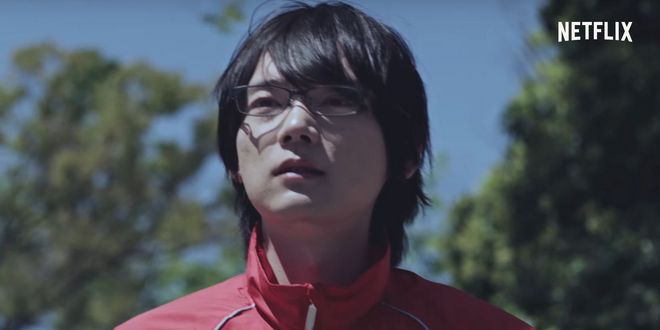
In a nutshell, he is going back in time to change the timeline?
Erased / Boku dake ga Inai Machi initially places the time travel premise as the main story and at the crux of it, that is the concept. This is a twelve episode TV series, splitting out the story into 30-minute segments.
First of all, Netflix has appeared to learn from their mistakes and avoided whitewashing, which is an immediate approval. The streaming service has also made sure there is time for the Manga adaptation to breathe and give the story time – a criticism for Death Note is that it was awfully rushed. There is a real focus to maintain the importance of the characters. Whilst Satoru is clearly overcome by his investigation, the movie becomes about the true value of family and friendship. The two-story arcs come together marvelously well in a majority of the short episodes. The Netflix Original is almost a coming of age story, except it is forced within the realms of time travel.
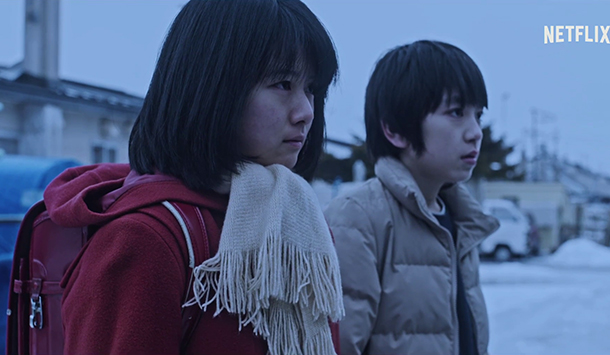
So the relationships between the characters are the true driving force?
Once you get by the slow and often dull opening episode, you realise that Satoru is much more interesting as a child. He spends a healthy portion of screen time making sure that the other children are okay, which in turn creates a solid friendship group. His courage is trial and error, where on occasions he has to start the timeline again. One plot point, in particular, is touching: his determination to avoid the kidnapping of Kayo Hinazuki is heartwarming. With his conversations with her, there is a growing connection that is felt through the screen. There is an obvious intention to provide the understanding that these two characters are heavily introverted. This is replicated slightly between Satoru and other characters too.
Erased / Boku dake ga Inai Machi really does show the importance of family and looking out for each other. There is a whiff of IT or Stranger Things sold to the audience here, especially when the children realise the danger and what is at stake. Overall, the TV series is articulated well.
But what about the time travel, isn’t that cool?
I’m reviewing this on the basis that I haven’t read the Manga. The time traveling aspect is not sold well. There is not a grand moment where he realises that he can do it and nor is it impressive either. In fact, everything involving the change of the timeline is unimaginative. The concept is there and you recognise it, but the movie does not hone in on the concept as much as I would have liked. Whereas in Netflix Death Note, they could not wait to reveal the first gruesome moment. They went too far.
What about the performances?
No performances really stand out as inspiring, however, there is nothing that sticks out badly either. The adult/child cast do equally well.
Anything to specifically criticise for the Netflix Original?
Netflix barely gave any time for Death Note to breathe. Unfortunately, they have given Erased / Boku dake ga Inai Machi too much time to breathe. It does not spoil the progress of the story but each episode moves at the same tone. Quite honestly, some episodes could have been avoided. Aesthetically the movie does not sell warm colours and as a picture, it is colourless throughout, which does not help at all considering it is already too long. It forces the brain to sag, and by episode ten you are really wanting the conclusion to come to the table. Again, I appreciate that this is adapted, so my observation may be from the original source. I welcome any comments.
Recommend?
It is worth the watch. As a binge watch, I would avoid. Netflix Original Erased / Boku dake ga Inai Machi sells a time-travelling story of a young man who is trying to protect his friends and family in dangerous circumstances. There are relationships to be desired in this story. Netflix is not out of the woods yet but this is a start.

